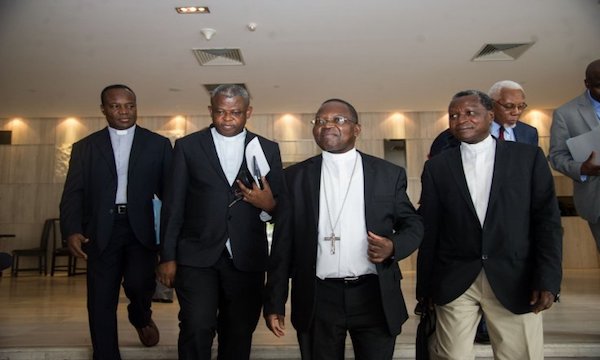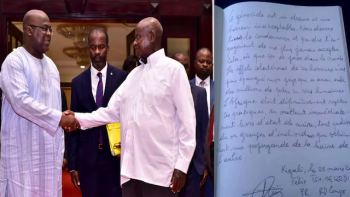The political dialogue brokered by the National Episcopal Conference of the Democratic Republic of Congo (DRC), known as CENCO between President Joseph Kabila's political alliance, the presidential majority (MP) and the Rassemblement, a broad coalition of opposition groups, has hit an impasse.
The organization of African, Caribbean and Pacific Group of States (ACP) and European Union (EU) has added its voice to many more, to acknowledge, while condemning the impasse and its deadly consequences. In a statement received by AfroAmerica Network, and signed in Sierra Leone on February 24, 2017, the ACP-EU Parliamentary body condemns calls on the DRC government to respect the terms of the December 31st, 2016 Agreement which provides for holding presidential and legislative elections before the end of 2017.
The statement also accuses the DRC government of large scale massacres of civilians, including the youth:
"ACP-EU Joint Parliamentary Co-Chair Netty Baldeh and Co-Chairperson Michele Rivasi, expressed their deep concern about the political, economic, security and humanitarian situation in the Democratic Republic of the Congo.
The Co-Chairs condemn with the utmost severity the recent deadly clashes and massacres of young people and children in the provinces of Kasai ((see background here), Central Congo and Kinshasa.
The Co-Chairs call for an international investigation by MONUSCO as soon as possible and for the prosecution of those responsible for these crimes against humanity and human rights violations."
ACP-EU is an organisation created by the Georgetown Agreement in 1975. It is composed of 79 African, Caribbean and Pacific states, all of them, except for Cuba, being signatories to the Cotonou Agreement, also known as the "ACP-EC Partnership Agreement". The Cotonou Agreement binds the African countries signatory to the European Union. There are 48 countries from Sub-Saharan Africa, 16 from the Caribbean and 15 from the Pacific.
Despite pressure, both internal and external, on DRC President Joseph Kabila to accept the peaceful transfer of power, with major concessions from the opposition to allow a smooth transition, Joseph Kabila has so far refused to approve the execution of the provisions of the accord.
Since the beginning there were signs that Joseph Kabila has long expected this outcome. He has already brought in Rwandan special forces to reinforce his Republican Guard, in preparation of the withdrawal of the Angolan troops and, according to sources in Katanga, his region of origin, he has started to prepare a referendum to change the constitution, to eliminate terms limit provisions, similar to what happened in the Republic of the Congo, Rwanda, and Uganda.

















